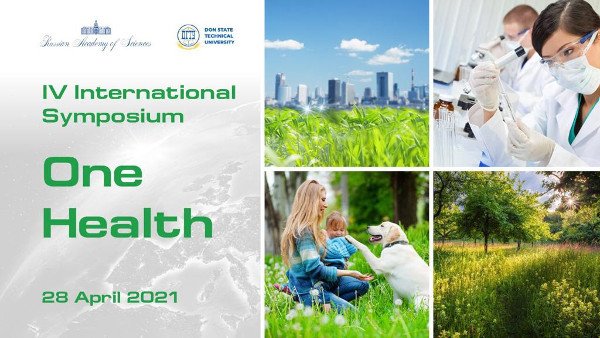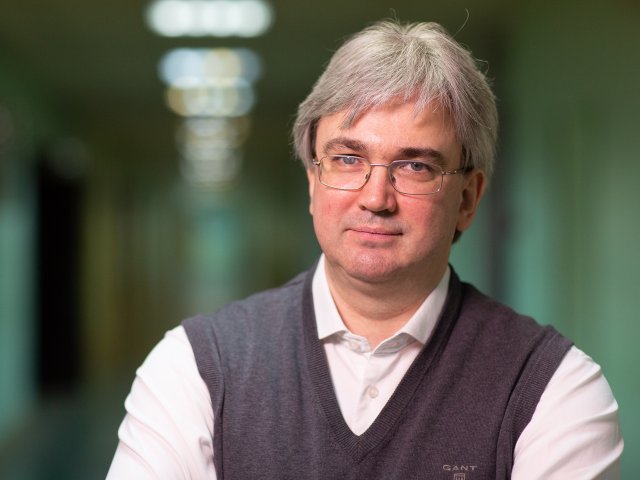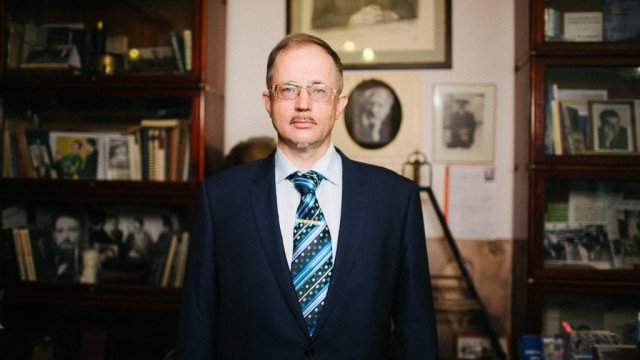On April 28, 2021, an online conference of the IV International Symposium “One Health” was held as part of the implementation of projects of the Russian Academy of Sciences in the field of international scientific and scientific-technical cooperation.
The opening of the symposium was attended by the presidents of the world academies of sciences, leading scientists in the fields of medicine and biology, as well as veterinary medicine and ecology. The event brought together experts from Russia, Georgia, India, China, Paraguay, the USA, Turkey, Uzbekistan, South Africa, and other countries. The key topics of discussion touched upon the threat of global emergent zoonoses, antibiotic resistance, pathogen evolution, food safety, and environmental safety.
President of the Russian Academy of Sciences, Academician Alexander Mikhailovich Sergeev addressed a welcoming speech to all participants. “Recent developments in the field of vaccines and response to the covid pandemic have demonstrated the ability of scientists to unite to face the global challenges. This pandemic has also shown us that the concept of “One Health” has become more relevant than ever,” the head of the Russian Academy of Sciences said. According to Alexander Mikhailovich, there are three main aspects of this concept – antibiotic resistance, zoonoses, and food safety. “Over the past few decades, we have noticed a significant increase in the field of emergencies, the spread of epizootics. Human and animal health is threatened by antibiotic resistance, emergence of new pathogens, and natural disasters. Studying the interconnection between human and animal health requires a multidisciplinary approach. We need experts on public health, animal health, environmentalists,” said Alexander Sergeev. The head of the Russian Academy of Sciences stressed that the symposium brought together well-known scientists, decision-makers, leaders in relevant fields; he thanked the participants, and wished a fruitful discussion.
Vice President of the Russian Academy of Sciences, Academician of the Russian Academy of Sciences, Doctor of Biological Sciences, Professor Irina Mikhailovna Donnik noted that it is necessary to competently approach the exclusion of antibiotics in veterinary activities. “Nature does not tolerate emptiness. As soon as we cope with one pathogen, another pathogen immediately appears, and it becomes even more dangerous. We must constantly conduct scientific research to study the biology of these pathogens and adequate measures. As for antibiotic resistance, I want to say that for some reason, lately, the vector has shifted toward veterinarians with the accusations that they use a lot of antibiotics and treat a lot. But what is used in veterinary medicine is much less than what is used in human medicine. We need to move away from antibiotics, which are used in non-medical activities, as growth stimulants. This is a very difficult topic, but there is a search for an alternative. Increased resistance of animals and plants is not due to antibiotics and antibacterial drugs, but due to natural medicines,” Irina Mikhailovna said.
Academician of the Russian Academy of Sciences, Scientific Director of the Federal Research Center for Nutrition, Biotechnology and Food Safety Viktor Alexandrovich Tutelyan: “Antibiotic resistance worries all of us, especially at the peak of the pandemic, when choosing an antibiotic is a matter of life and death. Currently, we are seeing many ineffective antibiotics. All the time there is a search for new and new ones, which also soon become resistant. This problem is of utmost importance.”
According to Melita Vujnovic, representative of the World Health Organization in Russia, it is important to build a sustainable protective environment for the life support of people and animals on Earth. “Our understanding is in the close connection between humans and animals, their common habitat. Our actions are very important to protect human and animal health, as well as to ensure a sustainable environment for the future. The COVID-19 pandemic turned out to be very painful and reminded us all that we live in a globalized world. The concept of one healthcare should be firmly established in our minds,” Melita Vujnovic noted.
President of the Georgian National Academy of Sciences Georgy Ivanovich Kvesitadze spoke at the opening of the IV International Symposium “One Health.” “Today, the issue of health and ecology is of great importance. Along with regional problems, the 21st century has brought three main problems that significantly threaten humanity – ecology, energy, and food. Violation of the ecological balance entails very serious consequences. These are global warming, the catastrophic growth of spontaneous mutations leading to the formation of degenerative forms of organisms, growth of previously unknown infectious diseases, inferiority of agricultural products, and much more. It is quite reasonable to believe that viral diseases are the result of a violation of the planet’s biological balance,” says the head of GNAS.
Hou Jianguo, a Member of the Chinese Academy of Sciences and the World Academy of Sciences addressed with greetings and gratitude for the participation in the opening of the IV International Symposium. “The current epidemic situation underscores the importance of strengthening international scientific and technical cooperation in the field of public health. To fight this global pandemic, we attach great importance to cooperation with the international scientific community. China and Russia are now leading in vaccine development and their creation. They maintain close contact in the field of microbiology. The institutes of the two Medical Academies of Sciences signed a memorandum of understanding to create a joint Russian-Chinese laboratory for COVID-19 research, as well as in the field of SARS, immunology, and microbiology,” Hou Jianguo said.
President of the Academy of Sciences of South Africa, Professor Jonathan Jansen, thanked the Russian Academy of Sciences for his participation in the opening of the IV International Symposium, and also voiced the actions of the Academy of Sciences of South Africa in the field of health. “Currently, the Academy of Sciences of South Africa has approved a scientific study related to the concept of “One Health.” We are already making some amendments to our research, taking into account various restrictions imposed on us by the pandemic. Much emphasis is placed on research and development, on biomedical strategies. It is very important for all our academies to ensure that specialists in the field of medicine and biology sit down at the table with sociologists, are with us,” said the President of the Academy of Sciences of South Africa.
As part of the scientific program of the event, a section was held on the topics of antibiotic resistance and biosafety, as well as on cross-border partnership. The speakers also discussed the threats of global emergent zoonoses, antibiotic resistance, pathogen evolution, food safety, and environmental safety.






















